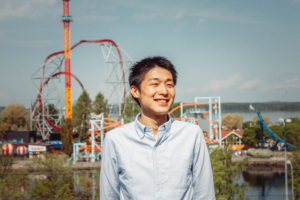My thoughts about Japanese and Finnish education
In the previous blog post I wrote about the comparison of the education systems of Finland and Japan, from the three different points, teacher qualification, ideology, and teaching method.
As you can see in the post, both Japan and Finland have their own belief and a sense of value.
First I’d like to choose one of the major external influence for each that makes the education system unique.
Also, I’d like to show my thoughts about how each system should be changed in the future.
Most important external influence
Finland: history of the country
The uniqueness of Finnish education system includes free education provided for everybody, the teaching style focusing on children’s autonomy, and so on.
It has been developed since the educational reform in 1968 when the country decided to invest as much resources as possible to the field of education.
Unlike other European countries that have lots of national resources such as crude oil, natural gas, and iron ore, Finland has been a small nation poor in natural resources.
In order to financially survive in the globalised world, the country determined to regard its human capitals as valuable resources for the potential future.
Therefore, Finland aimed at providing equal educational opportunity for everybody without any regard to financial ability, family background, and gender.
In other word, Finland decided to gamble on the possibility and potentiality that all children have and cultivate bearers of the nation’s future. That huge decision in the history was the most important influence over the nation education systems of Finland.
Japan: parenting styles
In Japanese education, parenting style is one of the biggest factors which determines how pupils/students performs at schools including the scores of exams and social interaction with other children.
Parents are usually expected to become engaged in children’s learning by checking the homework, participating parent-teacher’s meeting, and so on.
(My mom often checked my homework in my younger years)
Also, Japanese parents are relatively education-oriented and tend to anticipate high quality education from school. Teachers and schools in Japan are likely to become careful in the assessment of the pupils.
I think in Japan, teachers and schools are not that trusted as much as Finnish teachers and schools are. Thus, many school children nowadays go to cram school after school hours so that they can gain advantage in school performance.
Of course, that decision was usually made by the parents who hope to enroll their children in famous schools. Therefore, school systems can be shaped by those situations and the parenting style is a significant part of Japanese education.
It is also a factor which causes educational inequality among school children. It means, if you comes from rich family who can afford to pay for your cram school, or if you have education-obsessed parents, you are more likely to get better education and even well-paid jobs.
One point that should be changed
Finland: student achievement
All of the school children are not supposed to be led out under the Finnish education systems. I think that makes kids feel a sense of achievement more than those in Japan.
However, in my opinion, this superb outcome should still be changed a little bit for a better in a way that some pupils with exceptional talent and gifted children might be deserve higher levels of education rather than getting same education as other children.
Finland has can boast its student achievement as well as the average score along with the national education systems.
However, I think developing strong points and cultivating special talent of some school kids could be taken into account so that top pupils are able to make further achievements.
Japan: Independence
Pupils/students are usually not given autonomy in making choices about what they want to do, unlike Finland.
As a result, they are used to following the tasks given by teachers. More specifically, school children usually get passive lectures without many interactive activities under the Japanese teaching style.
Also, parents tend to decide what their kids should do to improve their learning skills. For those reasons, Japanese education is not helping pupils promote their independence.
I think It is very important to take “independence” into consideration seriously because in the near future school children will have to handle much more unprecedented challenges in this globalised society which is full of volatility and uncertainty.
As I already wrote in the previous blog post, Japanese education is good at developing pupil’s skill of doing simple tasks which are given from somebody else.
It had enabled Japan to inherit old traditions and techniques for a long time. That’s how Japan had learned from western countries after the second word war and developed the economy and technologies.
However, these Japanese teaching methods deprive the creativity of pupils/students. It has to be changed in line with the times!
What they should learn more is how to create new things from the scratch, find solutions from complex contexts by themselves, and think critically and voluntarily rather than memorising the exact dates of some historical events.
I believe that this old-fashioned education style is one big reason why Japanese companies have been struggling with making innovation happen in recent years.


Hi,
Your work is truly informative and helpful. I am just curious of the possible basis of your recommendation below:
Some pupils with exceptional talent and gifted children might be deserve higher levels of education rather than getting same education as other children.
Is this because of their concept of equality wherein all students shall be treated equally in terms of achievement?
I shall appreciate any enlightenment you may provide.
Hi Clark,
Thanks for your comment. Yes you summarise will on your comment, and I could also mention that the education system itself focuses more on giving relative high quality education to as many kids as possible based on their learning progress and personal interests, rather than finding very superior talents and making them exceptional. I basically like Finnish style but at the same time I wonder if it somewhat put gifted kids off chances to cultivate the talents more.